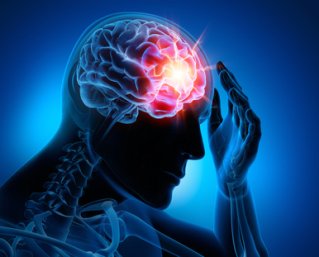Popular pain relief: Magnesium gains momentum as effective headache treatment
 An increasing number of people have started using magnesium supplements against migraine attacks and headaches. Even physicians acknowledge that this mineral may actually have great potential.
An increasing number of people have started using magnesium supplements against migraine attacks and headaches. Even physicians acknowledge that this mineral may actually have great potential.
More and more people who suffer from recurrent headaches and migraines use magnesium supplements to prevent ant cure their symptoms. Several newspapers and websites have caught onto the story and are writing about the growing interest for magnesium. If you search the net there is a substantial number of studies pointing to magnesium as an effective way of dealing with headaches and migraines which may have something to do with the fact that this particular mineral plays a role in muscle and nerve functions. At the same time, magnesium has a documented anti-hypertensive effect that may also contribute.
Effective against muscle cramps
Many people with recurrent cramps in their leg muscles use magnesium supplements with good results. Similarly, magnesium has a role in cardiology where it is used to stabilize the heart rhythm in individuals with heart rhythm disturbances. The European Food Safety Authority (EFSA) has officially acknowledged that magnesium contributes to normal functioning of nerves and muscles. This supports the mineral's role in vasoconstriction etc.
Harmless to try it
A quick Google search for scientific evidence of magnesium's preventative and therapeutic effect in migraines and headaches reveals a great deal of useful research. However, the documentation available at this point is not what one would rightfully call exhaustive. On the other hand, as Professor Rigmor Jensen, who is Director of the Danish Headache Center, is quoted as saying in one of Denmark's national newspapers, Politiken, on October 1. 2015: "what one can say about magnesium at best is that it will not harm you if you use it for a period. It is not dangerous. It is very difficult to overdose on this nutrient, as it gets excreted from the body."
Some magnesium sources are better
Speaking of getting excreted, consumers are normally unaware that only some magnesium supplements are easily absorbed in the body while others pass right through the digestive system. In order for the active substance to effectively support the more than 300 different enzymatic processes that depend on magnesium, the digestive system must able to absorb the nutrient. Some of the magnesium sources that are easy for the body to absorb are magnesium carbonate, magnesium hydroxide, and magnesium acetate.
The simple water test
An unofficial "water test" is sometimes used to determine if a magnesium supplement is any good. The test involves dropping a magnesium tablet into a glass of water and waiting for a few minutes. If the tablet dissolves the magnesium content is likely to get absorbed in the body, simply because a tablet that dissolves within minutes in regular water is guaranteed to get dissolved in stomach acid. However, there are many magnesium supplements that can stay in water for hours and even days without dissolving. These products are probably not worth betting your money on.
Magnesium deficiency is a common problem
Magnesium is a very important mineral which many of us fail to get enough of, at least if you ask one of the leading magnesium experts, Jürgen Vormann, a German nutritionist and biochemistry professor. According to Vormann, lack of magnesium is the second most common nutrient deficiency in Western countries, only surpassed by vitamin D deficiency. He estimates that every third German gets too little magnesium and the figure is likely to be the same for Scandinavians, as our way of living is quite similar to the German lifestyle.
Professor Vormann points to two factors as the underlying cause of our magnesium deficiency. One is our low intake of good magnesium sources such as nuts, whole-grain, vegetables, and seeds. The other is our widespread use of medical drugs that increase the body's need for magnesium, for instance drugs for treating e.g. hypertension and diabetes.
A magnesium deficiency affects all our cells, Professor Jürgen Vormann explains in an article in the Swedish magazine Kurera (March 11, 2015).
"Magnesium's possibly most important function is to support cellular energy metabolism. Magnesium works in close collaboration with ATP (adenosine triphosphate), which is energy stored chemically in cells. In other words, magnesium is involved in all processes that require energy - which means muscle contraction and nerve impulses," he explains.
- Created on .








